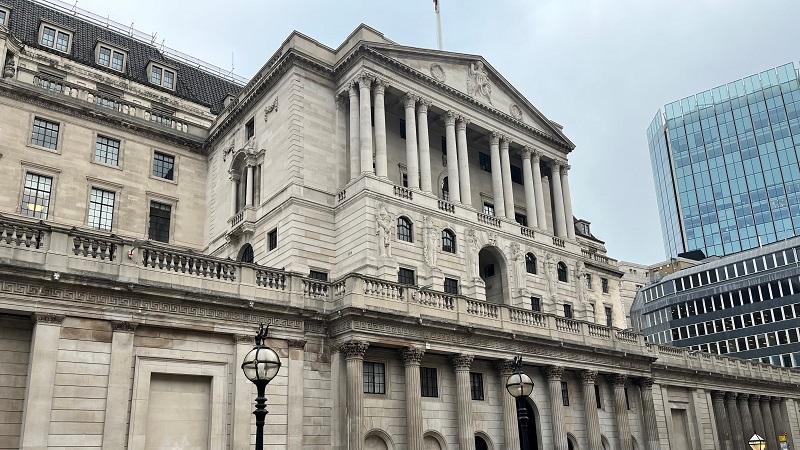The Bank of England’s monetary policy committee played ball on Thursday with a 50bps base rate rise at a meeting that had to be delayed following the death of Queen Elizabeth II.
The MPC has raised its base rate at every meeting since December 2021 and, at 2.25%, has reached its highest level since 2008.
The move was not unexpected, and comes as inflation ratches up to deeply uncomfortable levels, but some part of the market had been primed for a bigger rise – and arguably not unreasonably so.
Some dissent is starting to emerge among the MPC members, with five backing a 50bps rise and three pushing for a more aggressive 75bps, which would have mimicked yesterday’s hike by the Federal Reserve. One lone MPC member pushed for a 25bps rise.
The committee voted unanimously, however, to reduce the stock of purchased UK government bonds by £80bn over the next 12 months, to a total of £758bn.
For Hargreaves Lansdown senior investment and markets analyst Susannah Streeter, a “starting whistle has been blown on the economic tug of war between the Bank of England and [prime minister] Liz Truss’ government”.
“Even so, as it’s the seventh rise in quick succession, it still shows determination by the Bank to pull inflation down from stubbornly dangerous levels in terms of financial stability. Rates have raced up from 0.1%to 2.25% in less than a year, representing a sharp increase in borrowing costs, on top of the painful rise in energy and food prices.”
She added: “The Bank of England’s strategy may be unprecedented, but it’s recently become a well-trodden path, and up ahead the US Federal Reserve is leading the way, having raised rates by 0.75% for the third time in a row yesterday, and signalled there were more robust hikes to come.
“There may have been some dissent around the table at the Bank of England, about the size of the rate hike, but there is unanimity about the direction of travel, given that inflation is set to peak at 11% in October. The warning is clear – if inflation continues to be persistent, policymakers won’t hesitate to respond much more forcefully.”
George Lagarias, chief economist at Mazars, described the move as “well within market expectations”.
“The Bank is certainly doing its bit to fight inflation. Having said that, the reality is that the impact of higher interest rates may only be limited. Inflation is much more influenced by global than local factors.
“At a British economy level, a possible government intervention to mitigate tightness in the job market may prove a much more effective inflation fighter than any policy the central bank may come up with. At this point, the greatest contribution of higher British interest rates is to keep the pound from rapidly devaluing against the dollar, as this would further raise input prices.”











